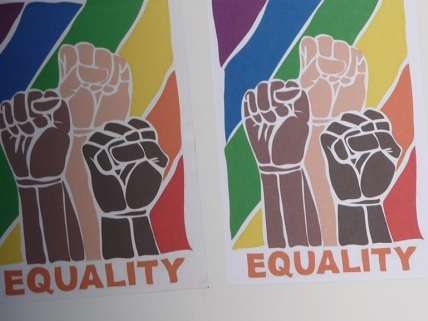What Do We Mean When We Talk About Equality?
The idea of equality is bandied about on the campaign trail.

The idea of equality is bandied about by politicians, but what does it mean?
A. Barton Hinkle writes:
Tom Perriello, the Democrats' insurgent candidate for governor, excites the liberal base of the party because he—like Bernie Sanders and Elizabeth Warren, who have both endorsed him—is a conviction politician. He has firm ideas about what government ought to do, and he expounds on them with a degree of depth and precision that puts some other statewide candidates to shame.
Much of what he wants to do involves questions of equality and inequality—terms that pop up again and again in the white papers he has written on the racial wealth gap, help for working families, and his tax plan, and in his Twitter feed, and elsewhere.
Which is refreshing. America, after all, is a nation based not on ethnicity or an accident of history but on ideas and ideals—including equality, the first of the self-evident truths mentioned in the Declaration of Independence.
Stating an ideal and living up to it are two different things, of course. American history has made that painfully clear. But when the ideal is as broad as equality—or liberty, or justice—even stating the ideal doesn't get you very far. At a high enough level of abstraction, everyone can agree on the virtue of equality, liberty, or justice.
But what do we mean when we talk about such things? Isaiah Berlin and others drew a distinction between negative liberty (the absence of external impediments) and positive liberty (the ability to do what you want): You are free to buy a Rolls-Royce because nobody is stopping you, but you are not free to buy a Rolls-Royce if you don't have the money.
There are also different types of equality.
